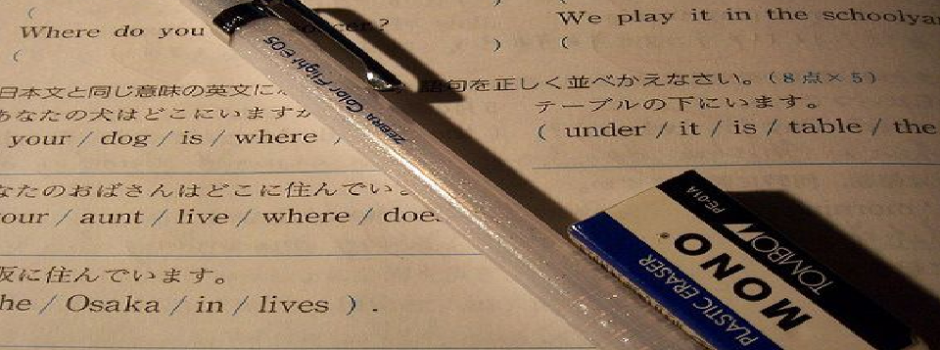What’s wrong with English education in Japan?

TOKYO —When you speak to foreign English educators in Japan, one thing becomes crystal clear: English education in Japan isn’t working. It’s just awful. While English classes are mandatory in Japanese schools, the percentage of students who emerge with actual English abilities are surprisingly low. Students in China, Korea and Japan are in an arms race to see who can produce students with the best English, and Japan seems to be trailing far behind in third place.
With the Olympic Games coming up in 2020, the Japanese government has proposed changes to increase the level of English ability in their students. Changes like starting introductory English classes in 3rd grade elementary school and making the subject compulsory from the 5th grade. Are these changes really going to help? We’ve gathered opinions from both foreign teachers and Japanese citizens about issues with the system and what might improve it.
Every foreigner who spends any amount of time in Japan will understand the fundamental need to change the way students study English. But a recent thread on the Japan subreddit, which seems to have been started by an English educator, tried to assemble as many opinions as possible about the matter in one place. Many of the complaints fell into three main categories:
Teaching to the tests
For those unfamiliar with the Japanese school system, most high schools and universities have a test that prospective students must take and pass. Especially in the case of high schools, there is a mandated set of content that appears. And so, Japanese Teachers of English (JTEs) focus on the grammar and vocabulary that will be on the test. A broader understanding and the practical uses of English are largely ignored because they have to cover the specific material and don’t have time for anything else.
So, if Japanese students have to learn specific material for the tests, why should they learn anything else? There is no point in actually learning the language if all that is required is being able to pick the correct answer on a multiple choice test. Many Japanese netizens agree, “Why change anything unless the style of testing is changed?”
The quality of the textbooks is quite low
Many foreign language teachers criticized the textbooks used in the classrooms, complaining about all manner of things including content and grammatical errors. Even more specifically, many people found the choice of grammar included to be suspect, saying it wasn’t grammar used very often in native English. The JTEs have to teach these archaic forms through topics such as recycling plastic, people and animals dying in WWII and boring Japanese history, causing students to be apathetic. (Topics like these are required in government approved textbooks.)
A focus on translating into Japanese and JTEs speaking in only Japanese. Where is the English?
Perhaps one of the biggest complaints was the amount, or lack of English used in the classrooms. The JTEs often teach all the grammar in Japanese, and check that the students can follow the textbook by translating the English into Japanese. Assistant Language Teachers (ALTs) are regulated to human tape recorders, and then set free to roam the class and “help” the students. Of all the hours of English education, how many of those hours were spent actually listening to and speaking English? (Repeating English is not the same as speaking it.)
Japanese people agree that the current teaching style often limits students to what little English they hear from the teachers and what words are put in front of them. Successful teaching should include as many senses as possible to surround students in English. One Japanese netizen suggests that TV dramas should be utilized to hear real English, while seeing the facial expressions and mouth movements all together in one package. How can a student not be excited to learn phrases like “OK, I’m on my way”, “What’s the problem?” or “Freeze! You’re under arrest!”
Which brings us to the main problem with the current system: Japanese students don’t understand the benefits of learning English. This is certainly not limited to Japanese learners, but how many time do you hear a student say, “I’m Japanese, so I will never use English in the future.” Studying English as a language is one of the least interesting things about it. But, what about all the different things that you can experience when you understand English? TV shows, movies, books, games, and it’s not even limited to entertainment, scientific journals, international business and the majority of the Internet is conducted in English.
When the exposure of English is limited to the classroom and the unfortunate textbooks, a majority of the students will disengage from it and end up not learning anything. When students are forced to study and learn about certain grammar points and vocabulary, with no knowledge about how you can apply it to all the amazing things in English, of course, the students are going to do poorly. Expose them to the idea that, yes, this is a subject you have to study, but look at what you can do with it outside the classroom. You can excite students with that and promote self-study, which is a much better approach than learning “This is a pen” for the sake of a test.
Source: JapanToday
